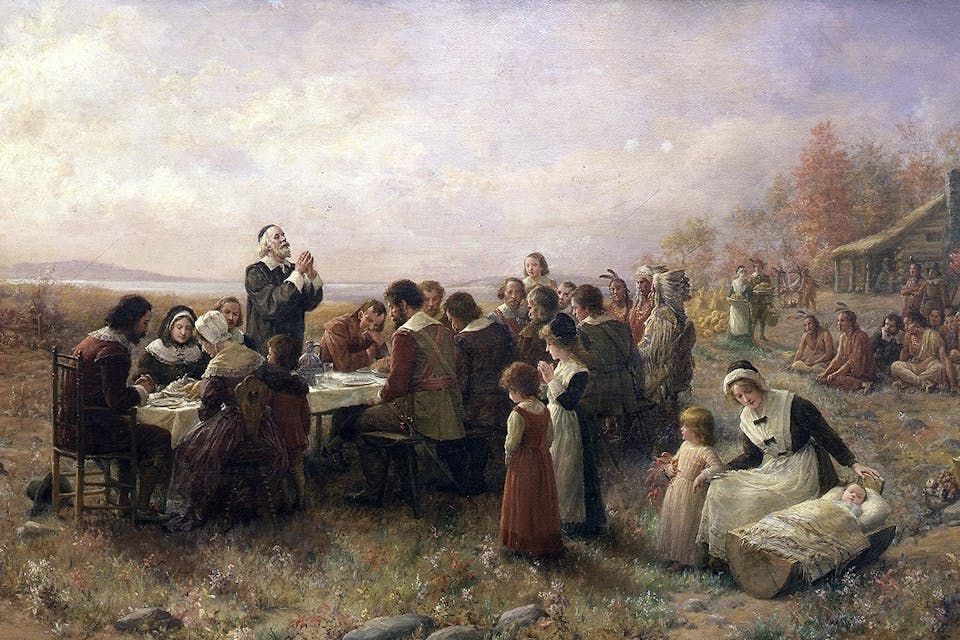
November 25, 2020
Jewish Ideas in Plymouth Colony
The faith of America’s Pilgrim ancestors was deepened by Jewish texts, while their acts of gratitude were conscious reenactments of the Jewish past.
This year we mark the 400th anniversary of the Pilgrims’ landing on the shores of Massachusetts. There is of course much that Americans can learn from the voyage of the Mayflower and its passengers. But since tomorrow is America’s day of thanksgiving, I want to attempt to inhabit the minds of America’s Pilgrim ancestors, whose Christian faith was deepened by Jewish texts and whose acts of gratitude were conscious reenactments of the Jewish past.
William Bradford, the Plymouth Colony’s second governor, was also the author of a famous history of the colony, Of Plymouth Plantation. A more recent history of the Pilgrims, Nick Bunker’s Making Haste from Babylon, notes a meaningful anomaly in the governor’s history. Bradford chose a highly unusual style for his chapter describing the Pilgrims’ journey across the Atlantic and their arrival at their new home. Eschewing the custom of most travelogues of the day, which document even the most granular details of mundane happenings aboard the ship and the minutiae of navigation, Bradford casts the Pilgrim journey in the grand context of the Bible’s sacred history.
Bunker connects Bradford’s account with the biblical commentary and psalter of the Cambridge-educated English Hebraist Henry Ainsworth, whom the Pilgrims held in high esteem. We know the Mayflower’s passengers had, in addition to the Ainsworth Psalter, at least two copies of his major work, his Annotations upon the Five Books of Moses, one belonging to John Howland, and the other to William Brewster. As Bunker puts it, “By way of Ainsworth, Bradford fell under the influence of Judaism, its rabbis of the Middle Ages, and their manner of interpreting the Bible and the vagaries of human life. It was because of this that Bradford wrote about the Mayflower as he did.”